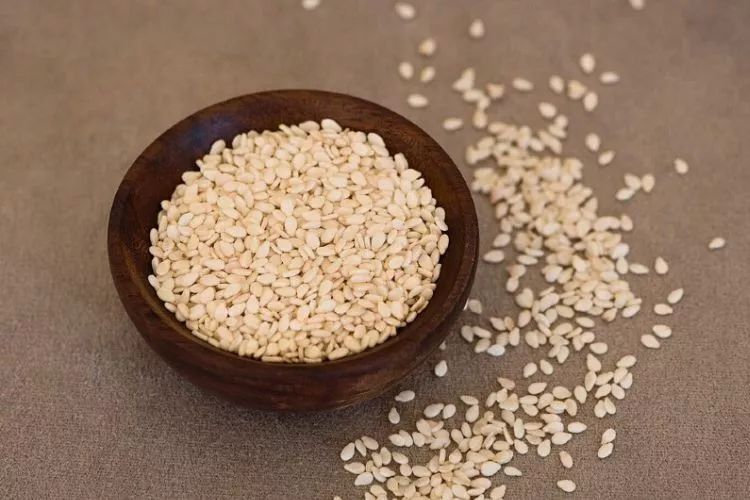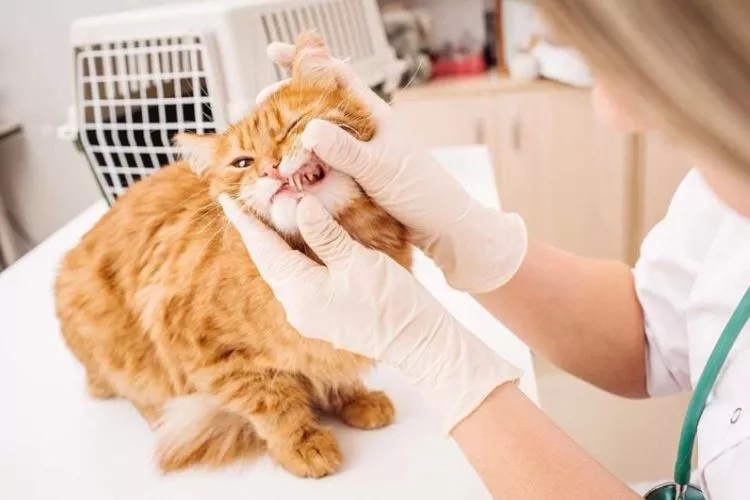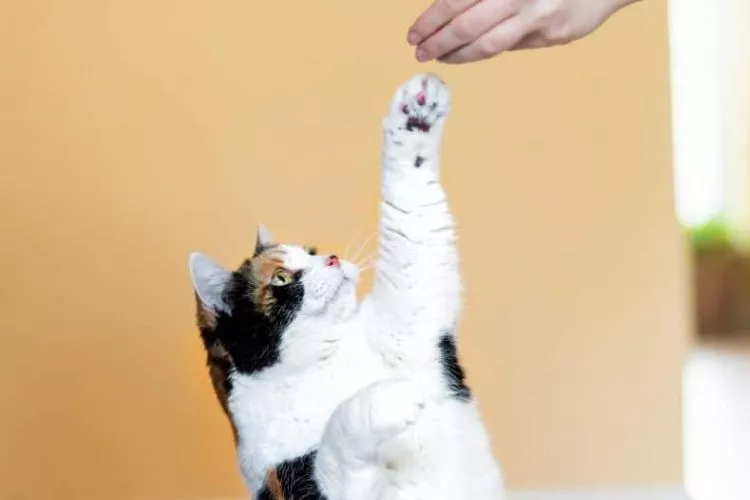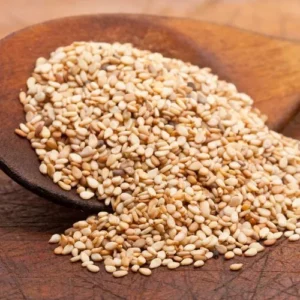Ever watch your cute feline friend eyeing your sesame-seed sprinkled bagel and wonder, “Can cats eat sesame seeds?”
Here’s a treat for the curious souls – an article that sheds light on your feline friend’s dietary mysteries. While we know that cats primarily thrive on a protein-rich diet, the question persists – are wholesome sesame seeds safe?

We delve into the nuances of it, offering insights from expert veterinarians and experienced pet parents.
Prepare to venture into the realm of feline nutrition, where we untangle the curiosity around our furry friends and their possible indulgence in commonly found sesame seeds.
🐾 Can Cats Eat Sesame Seeds?
While sesame seeds aren’t toxic or harmful to cats if consumed in small amounts, they’re not necessarily beneficial or advisable for feline diets either. Cats are obligate carnivores, which means their bodies are best suited to process animal proteins and they gain minimal nutritional value from seeds or plants.
Sesame seeds, similar to other human foods, can be difficult for cats to digest if eaten in larger quantities, potentially causing gastrointestinal discomfort. Moreover, due to their high fat content, excessive consumption can lead to obesity and other health issues in cats over time.
Therefore, it’s best to stick to cat-appropriate food and treats for your pet’s regular diet. Offering sesame seeds as a treat might not harm them occasionally, but it’s not a feeding habit that should be encouraged or regularized. Always consult with your vet if you’re considering making any significant changes to your cat’s diet.
🐾 Effects of Sesame Seeds on Cat’s Health: A Detailed Exploration
Cats’ digestive systems are specifically designed to handle a meat-based diet. This means they do not possess the same digestive enzymes as omnivores like humans to efficiently process plant-based food items, including seeds such as sesame.

Let’s delve into the possible health implications of feeding sesame seeds to cats:
- Digestive Issues: Cats might struggle to digest sesame seeds properly, potentially leading to digestive discomfort or disorders like constipation or diarrhea. Moreover, if a cat has an allergic reaction to the seeds, it may experience vomiting or inflammation in its digestive tract.
- Nutritional Imbalance: Since cat’s require a diet rich in animal proteins to meet their nutritional needs, overconsumption of sesame seeds could eventually lead to nutritional imbalances.
- Obesity and Related Health Issues: Sesame seeds are calorie-dense, with high levels of fats. Although these are healthy fats for humans, in cats, they can quickly lead to excessive caloric intake. If not adequately managed, this could result in obesity over time. Obesity in cats, like in humans, lays the foundation for various health risks such as diabetes, heart disease, and decreased life expectancy.
- Choking Hazards: Small and hard, sesame seeds could pose a choking hazard, especially for smaller or more curious cats. If inhaled, they could even potentially lead to respiratory issues.
- Potential Allergies: Some cats might develop allergic reactions following the consumption of unfamiliar food substances like sesame seeds, exhibiting symptoms ranging from mild discomfort to more severe responses like skin irritation, gastrointestinal problems, and more.
Remember, different cats have different tolerances and reactions to foods. While one cat might seem perfectly fine after consuming sesame seeds, another might not react as positively. Always consult your vet regarding significant dietary changes or if your cat is showing any signs after consuming suspicious food.
🐾 Healthy Treat Alternatives for Cats: Serving Nutritionally Appropriate Delights
When it comes to treating your feline friend, it’s vital to opt for options that not only taste good but also contribute positively to their overall health.

Here’s a list of healthier and cat-friendly alternatives to sesame seeds:
- High-Quality Cat Treats: Pet stores are filled with a variety of cat treats that are formulated to cater to the nutritional needs of your felines. These could range from soft chew treats to dental sticks, all packed with flavors your cat might love.
- Lean meats: Cats are carnivores, and as such, they much prefer the taste of meat over anything else. Treats made of lean meats such as chicken or turkey, provided they are cooked without any harmful additives like salt, are a great option.
- Fish: Fatty fish like salmon or tuna can provide the essential omega-3 fatty acids for your cat’s skin and fur health. However, remember to serve these in moderation as they should not replace the meat in their diet.
- Catnip: Not necessarily a food treat, but catnip can be a delightful indulgence for many cats, stimulating their sense of play and enjoyment.
- Commercially Available Wet Foods: Wet food options can be a delight for cats, offering a varied diet and keeping them interested. Plus, they tend to have higher water content which can contribute to your cat’s hydration.
- Specific Diet Treats: If your cat has a specific diet due to medical conditions or age, brands usually have treats to match the dietary requirements. These treats are formulated keeping your cat’s health and nutritional needs in mind.
Remember, treats should never replace a balanced diet but can be a great supplement and a fun way to engage with your feline companion. Always consult with a veterinarian to ensure the treats align with your cat’s specific dietary requirements and health status.
🐾 frequently asked questions (FAQs)
While black sesame seeds are not toxic to cats, they are not necessarily beneficial either. Cats are obligate carnivores, designed to consume and absorb nutrients primarily from animal-based sources. Foods like black sesame seeds are not a natural part of their diet and can be challenging for them to digest if consumed in larger quantities. Also, due to the high fat content, regular feeding of sesame seeds could lead to unwanted weight gain in your feline friend.
Although sesame seeds are not commonly known to cause allergies in cats, individual reactions can vary. Some cats might exhibit allergic symptoms such as skin irritations, gastrointestinal issues, or more severe reactions after consuming sesame seeds. Like humans, cats can develop allergies to almost any food substance. If you notice any abnormal symptoms following your cat’s consumption of sesame seeds, it’s advisable to consult your veterinarian immediately.
If you’re seeing what resembles sesame seeds either in your cat’s feces or bedding, it’s likely these are not sesame seeds but a common type of tapeworm called Dipylidium caninum. These ‘seeds’ are actually tapeworm segments that are shed in the feces. Cats typically acquire this parasitic infection from ingesting infected fleas during grooming. Therefore, it’s essential to maintain a strict flea control regime and to consult your vet if you notice these ‘sesame seeds’, as your cat may need a deworming treatment.
Also read: Can Cats Eat Donuts? | Can Cats Have Bread?
Conclusion:
While cats can consume sesame seeds without experiencing immediate toxicity, these seeds do not confer any substantial health benefits due to cats’ carnivorous physiology. Coupled with potential complications linked to digestion issues, allergies, and the risk of obesity, it’s clear that sesame seeds should not be a regular part of a cat’s diet.
A diet rich in high-quality animal proteins remains the best for our feline friends. As always, it’s essential to consult with a vet for any significant changes to your cat’s diet. Your cat’s health is a priority, and their nutrition should reflect this.
